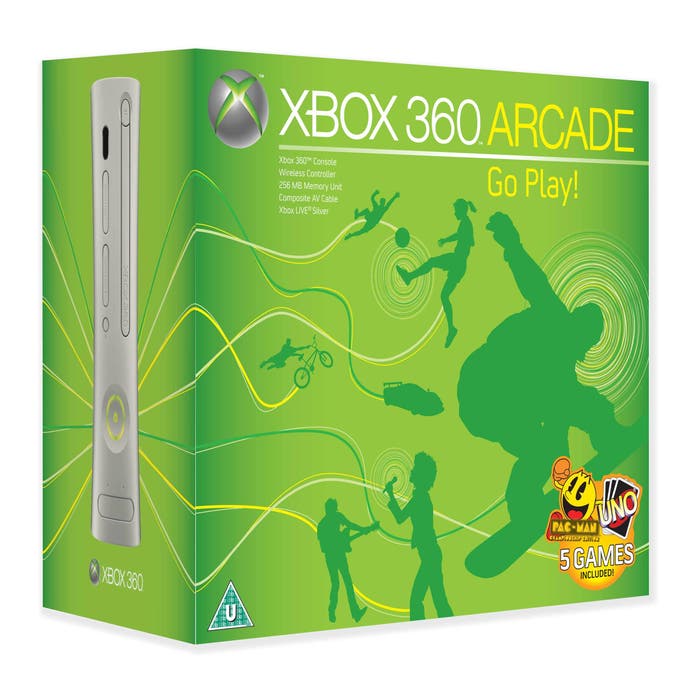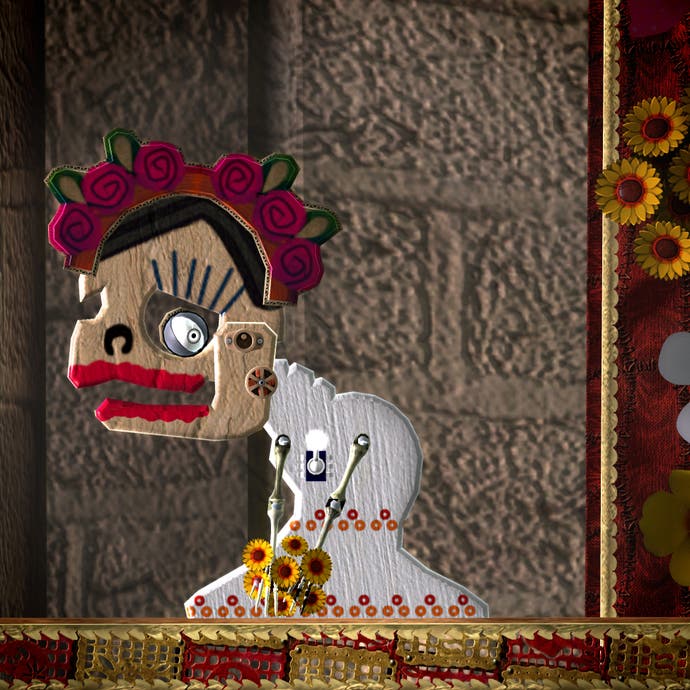Microsoft's Aaron Greenberg
On the console war and what's next for Xbox 360.
The name Aaron Greenberg has become increasingly familiar in recent months. Officially, he's the director of product management for Xbox 360 and Live. In practice he's Microsoft's most vocal spokesperson, hitting the headlines for everything from having a go at Home and taking a pop at Blu-ray to predicting who would win the battle for Christmas cash.
Seeing as he's got so much to say for himself, we thought it would be a good idea to catch up with Greenberg for a longer chat. Read on to find out his views on the console war, how important Europe is to Microsoft and what's next for Xbox Live.
[Laughs]
I don't think we had much of a reaction, to be honest. We need to focus on delivering as much value as we can to consumers. Today, Xbox 360 delivers more value out of the box than any other device connected to the TV. We're the ultimate entertainment system, delivering movies, music, pictures, games - all together. Doing that starting at GBP 129 makes us unique.
When you go into the store, you walk up to the cash register, they ring up your system, and one system is half the price of the other. I don't think consumers really bring these grids and charts into the store with them.
Our philosophy for this generation was that we didn't believe the marketplace was about a one-size-fits-all solution any longer. That's why we designed a variety of different console offerings, in the belief there are different sets of consumers who want different levels of experience at different price points.
A big part of that is having a console on the market that's at a mass-market price-point. Consumers who are new to the experience, or who want a more casual experience, don't have to pay a premium for features they would probably never use.

Consumers are being much more cautious about how they're spending their entertainment dollars. As a result, the two consoles that are at mass-market price-points are, frankly, the only two really seeing success.
It proves consumers are looking for new types of experience. We've focused on delivering an all-purpose device and I think it's a different strategy to what Nintendo's done. Their device is much more single-purposed and focused on just gaming.
I don't think we're really comparing how we think our hardware will sell this year relative to the Wii. The nature of this business means that typically, you sell your hardware at little-to-no profit, and you make your money on the games. That's where third-party publishers make their money.
Xbox 360 is the system where the most games are being sold. We now have an attach rate of over eight games per system. We're clearly the platform that's driving the majority of all third-party profits, and that's before you even get to online. Nintendo may benefit when they sell hardware, but if third-party publishers aren't selling games the whole ecosystem doesn't benefit.
I don't know. You'd have to ask EA, Ubisoft, Capcom and all those guys. They would say that for the most part they're selling and making most of their money on the Xbox 360... From their standpoint, we're the platform driving the majority of their revenues.
We don't share all our news at the beginning of the year. You saw that last year - we waited until July and E3 to announce things like the New Xbox Experience, You're in the Movies, Lips...
We sure have not announced our line-up for the full year, and we'll probably wait till later to do that. We typically take the under-promise and over-deliver approach; we like to talk about products a little bit closer to when they're ready to share with consumers.
Absolutely, without a doubt. I wouldn't even isolate it to games. I would also remind you that we have a massive team focused on innovation. The same team that built the New Xbox Experience is bringing in all types of new experiences to consumers in 2009.

I can safely say that if you're an Xbox 360 owner today, you will end 2009 with a whole slew of new features, new content, new partners, new games that today you don't know about.
I think everyone is looking for different ways to allow consumers to participate in the creative process. We've given away the XNA software tools for free and we're not just letting people create their own games, but allowing them to sell their games and actually make a business out of it.
There's new, up-and-coming talent in this industry. Music and movies have an indie scene where people are able to create unique types of experience and get discovered. Videogames have never really had that because it's been so cost prohibitive. We're excited to have that in place.
With Kodu we're building a creative extension on top of that, and allowing people of all ages to have fun, to create and share content. So everyone takes a different approach, but at the end of the day we've seen it work in other products, so we're all looking at ways to allow consumers to participate.

